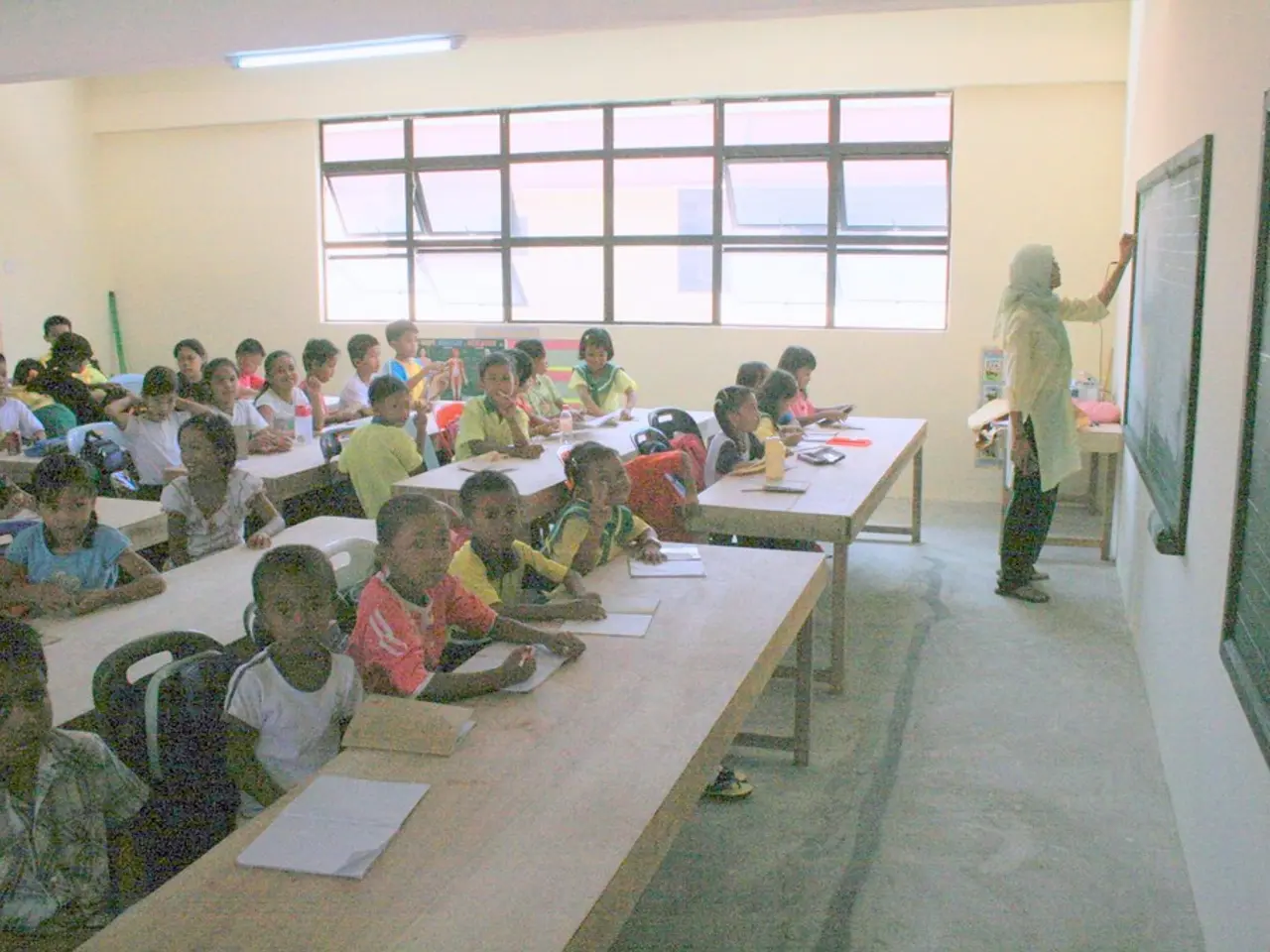AI Integration Expands in German Schools: An Overview
In the ever-evolving world of technology, Germany is leading the charge in integrating Artificial Intelligence (AI) into education, with a strong emphasis on media literacy and critical analysis of AI-generated information. This shift is seen in various initiatives across primary, secondary, and tertiary education.
One of the notable projects is "All fake - or what?", which aims to make learning about AI and media literacy part of school curricula. This project, set to provide teaching materials from autumn 2025, targets around 9,000 schools in Germany, Switzerland, and Austria, equipping students with skills to critically analyze media quality, misinformation, and AI's role in media and society. The materials will be available on the Check News platform [1].
Universities in Germany, such as the German Jordanian University, are adopting comprehensive and strategic models for the ethical and strategic incorporation of generative AI tools into smart education, covering multiple academic disciplines and emphasizing responsible, innovative educational approaches [2].
To support ongoing education for both students and teachers, AI education in Germany is also backed by international summer schools and interdisciplinary programs. For instance, the 11th International Summer School on AI and Big Data held in Dresden/Leipzig in 2025 focused on applications of language models with discussions on ethics and education, reflecting broader efforts to prepare educators and students to engage with AI responsibly [3].
Bremen, a city-state in Germany, has announced plans to adopt the use of an AI tool called "Telli" in its schools state-wide. Telli, a large language model (LLM) similar to ChatGPT and other mainstream chatbots, is designed not to collect user data to train underlying models [4]. Teachers can upload documents for students to get context-specific answers using Telli.
However, concerns about AI dependence among students are rising. Some educators argue that relying too heavily on AI tools can rob students of opportunities to develop crucial skills. Moreover, the misuse of AI tools by students for academic dishonesty is a growing issue. Chatbots can sometimes provide false answers, and the AI program "Study Buddy," while helpful due to its patience and ability to explain concepts in multiple ways, still requires fine-tuning to ensure all answers are suitable for students' understanding levels [4].
Despite these concerns, many educators see AI as having a place in the classroom and as necessary to prepare students for the modern world. Sascha Aulepp, Bremen's Senator for Children and Education, states that the adoption of Telli is aimed at preparing pupils for a future where dealing with AI will be commonplace [5]. The headmaster of the Cologne high school emphasizes the importance of keeping up with the times and encouraging students to use AI reflectively and in a way that promotes learning [6].
In summary, Germany's approach to AI integration in education emphasizes responsible use, media literacy, and critical analysis of AI-generated information. Initiatives like "All fake - or what?" and the Check News platform are aimed at equipping students with the skills to identify misinformation and deepfakes, fostering media competence and critical thinking. Universities are adopting comprehensive and strategic models for ethical AI use in education, serving as role models for broader educational adoption. Continuing education programs and summer schools address AI ethics, trustworthy AI, and digital transformation, supporting ongoing education for both students and teachers. These measures collectively highlight Germany's commitment to integrating AI into education responsibly, ensuring that students are not just users of AI technology but are prepared to critically engage with it.
References: [1] https://www.europeana-ai.eu/all-fake-or-what [2] https://www.german-jordanian-university.com/en/research/ai-and-big-data [3] https://www.europeana-ai.eu/11th-international-summer-school-on-ai-and-big-data [4] https://www.wdr.de/nachrichten/wissen/neue-kunstliche-intelligenz-in-den-schulen-100.html [5] https://www.wdr.de/nachrichten/wissen/neue-kunstliche-intelligenz-in-den-schulen-100.html [6] https://www.wdr.de/nachrichten/wissen/neue-kunstliche-intelligenz-in-den-schulen-100.html
- The ongoing "All fake - or what?" project, set to provide teaching materials from autumn 2025, demonstrates Germany's focus on integrating technology, particularly in the form of AI education, into primary, secondary, and tertiary education, with a primary aim of fostering media literacy and critical analysis of AI-generated information.
- Universities in Germany, like the German Jordanian University, are implementing strategic and ethical models of technology, specifically AI, into smart education, with the objective of equipping students with the skills to engage responsibly and innovatively with AI in various academic disciplines.




